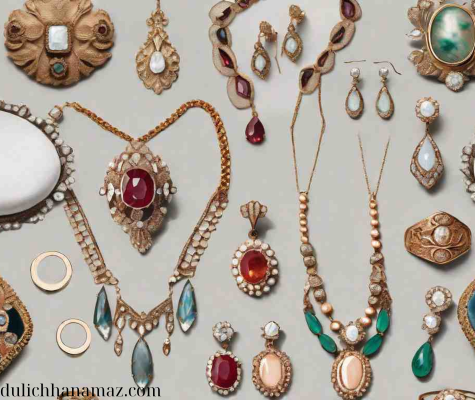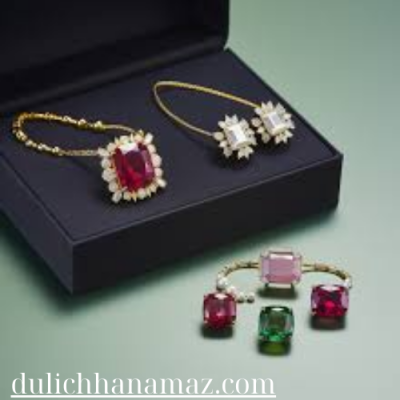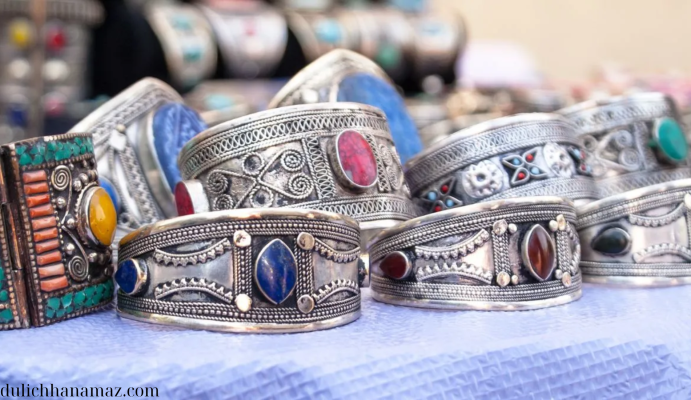Antique collecting is a pursuit of history, craftsmanship, and timeless beauty. Rare antique treasures stand out not only for their age but also for their exceptional craftsmanship and historical significance. These unique pieces are often hard to find and represent a rich legacy of artistry and tradition. Here’s a guide to discovering some of the most exceptional and hard-to-find antique treasures.
1. Victorian Jewelry: Elegance and Intricacy
Overview: Victorian jewelry, from the mid-19th century to the early 20th century, is celebrated for its intricate designs and rich symbolism. Pieces from this era often feature ornate details and elaborate craftsmanship.
Key Characteristics:
- Materials: Commonly used materials include gold, silver, enamel, and gemstones like garnets, amethysts, and diamonds.
- Designs: Look for intricate patterns, sentimental motifs, and high-quality craftsmanship. Popular styles include lockets, cameos, and brooches.
- Significance: Victorian jewelry often has sentimental value, with designs that reflect personal stories, mourning customs, or romantic themes.
Notable Examples: Engraved gold lockets, elaborate cameos, and mourning jewelry.
2. Art Deco Pieces: The Pinnacle of Glamour
Overview: The Art Deco period (1920s-1930s) is known for its sleek, geometric designs and luxurious materials. This era represents a bold departure from the ornate Victorian style, embracing modernity and opulence.
Key Characteristics:
- Materials: Art Deco jewelry often features platinum, diamonds, and colored gemstones like emeralds, sapphires, and rubies.
- Designs: Look for geometric patterns, streamlined shapes, and bold contrasts. Designs often incorporate symmetrical lines and motifs inspired by the machine age.
- Significance: Art Deco pieces are celebrated for their craftsmanship and innovation, embodying the spirit of the Jazz Age.
Notable Examples: Diamond and emerald brooches, geometric diamond rings, and platinum bracelets.
3. Georgian Furniture: Classic and Refined
Overview: Georgian furniture, from the early 18th to early 19th century, is renowned for its elegance, craftsmanship, and fine materials. Pieces from this period are highly prized for their quality and historical significance.
Key Characteristics:
- Materials: Commonly used woods include mahogany, walnut, and oak. Upholstery often features luxurious fabrics like silk and velvet.
- Designs: Look for refined lines, intricate carvings, and elegant proportions. Styles include Chippendale, Hepplewhite, and Sheraton.
- Significance: Georgian furniture reflects the tastes of the British aristocracy and the transition from early classical to neoclassical styles.
Notable Examples: Mahogany writing desks, Chippendale armchairs, and Hepplewhite sideboards.
4. Chinese Porcelain: Artistry and History
Overview: Chinese porcelain, particularly from the Ming (1368-1644) and Qing (1644-1912) dynasties, is renowned for its quality, artistry, and historical importance. These pieces are highly collectible and prized for their craftsmanship.
Key Characteristics:
- Materials: Fine porcelain with intricate hand-painted designs, often featuring motifs like dragons, phoenixes, and floral patterns.
- Designs: Look for specific styles such as blue and white porcelain, famille rose, and monochrome glazes.
- Significance: Chinese porcelain reflects the technical and artistic advancements of ancient China, and many pieces were also produced for export to European markets.
Notable Examples: Ming Dynasty blue-and-white vases, Qing Dynasty famille rose plates, and fine porcelain figurines.
5. Mid-Century Modern Art: Bold and Innovative
Overview: Mid-century modern art (1940s-1960s) is characterized by its innovative use of materials, bold forms, and the merging of art with everyday life. Collectors prize these pieces for their historical and artistic value.
Key Characteristics:
- Materials: Common materials include acrylics, metal, and unconventional uses of wood and textiles.
- Designs: Look for abstract forms, vibrant colors, and a blend of functionality with artistic expression. This era includes both furniture and decorative arts.
- Significance: Mid-century modern art reflects the post-war optimism and design revolution, emphasizing simplicity and organic forms.
Notable Examples: Abstract paintings by artists like Mark Rothko, sculptural furniture by designers like Charles and Ray Eames, and iconic ceramics.
6. Rare Vintage Watches: Precision and Elegance
Overview: Vintage watches, particularly those from prestigious brands such as Rolex, Patek Philippe, and Audemars Piguet, are highly sought after for their precision, craftsmanship, and historical value.
Key Characteristics:
- Materials: Look for watches made from precious metals like gold and platinum, as well as high-quality movements and intricate designs.
- Designs: Vintage watches often feature unique dials, cases, and complications that reflect the era of their production.
- Significance: Collectors value these watches for their historical significance, craftsmanship, and the prestige of the brands.
Notable Examples: Rolex Submariner from the 1960s, Patek Philippe Calatrava, and Audemars Piguet Royal Oak.
7. Antique Maps: Historical and Decorative
Overview: Antique maps provide a fascinating glimpse into historical geography and cartography. They are highly valued for their historical significance and artistic qualities.
Key Characteristics:
- Materials: Look for maps printed on high-quality paper or parchment, often featuring hand-colored details.
- Designs: Antique maps can range from early world maps to detailed regional maps, each reflecting the cartographic knowledge and artistic style of its time.
- Significance: These maps are valued for their historical insight and decorative appeal, often serving as stunning wall art in addition to historical artifacts.
Notable Examples: Early world maps by Gerardus Mercator, vintage city maps of major historical cities, and detailed explorations by early cartographers.
Conclusion
Discovering rare antique treasures involves an appreciation of history, craftsmanship, and artistry. Whether it’s the intricate designs of Victorian jewelry, the sleek elegance of Art Deco pieces, or the refined beauty of Georgian furniture, each rare antique tells a unique story. Chinese porcelain and vintage watches offer insights into global craftsmanship and innovation, while mid-century modern art and antique maps reflect pivotal moments in art and history. Collecting these exceptional pieces not only enriches your collection but also preserves a piece of history for future generations.



